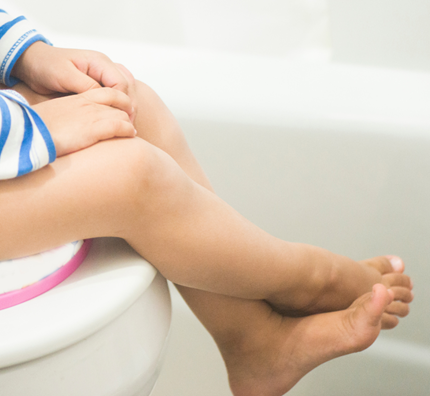When to Start Potty Training
Some common signs of readiness include:
- Staying dry for two or more hours during the day or waking up dry after naps
- Showing interest in the bathroom or in wearing “big kid” underwear
- Communicating when they need to go or when they have already gone
- Uncomfortable with dirty diapers and showing a desire to stay clean and dry
- Demonstrating independence, such as pulling their pants up and down by themselves
Tips for Successful Potty Training
- Create a routine: Establish a consistent bathroom routine, such as sitting on the potty after meals or before bedtime. This helps the child associate specific times with using the potty.
- Use positive reinforcement: Praise and rewards, like stickers or small treats, can encourage your child to use the potty and help them feel accomplished. Celebrate even the smallest successes.
- Make it fun: You can introduce fun potty-training books or songs to keep your child engaged and excited about the process. There are even potty-training apps that help track progress and keep things lighthearted.
- Be patient and flexible: Accidents will happen, and that’s completely normal. It’s important to stay calm and avoid punishing your child. Be flexible and allow your child to move at their own pace.
- Lead by example: If possible, let your child observe other family members using the bathroom, as modeling the behavior can be a powerful learning tool.
South Carolina Resources for Parenting Support
- SC Parents: This initiative of Children's Trust of SC offers various parenting resources, including tips for developmental milestones and early childhood education.
- ABC Quality: A program of South Carolina Department of Social Services helps South Carolina parents identify high quality child care and daycare providers.
- South Carolina First Steps: This state agency helps prepare children for school success, offering tips for parents.
- Local Public Library: The library offers books and videos that can help you better explain the process.
- Your Local Pediatrician: Many pediatricians in South Carolina offer advice on when and how to begin potty training. They can provide tailored support specific to your child’s needs, so don’t hesitate to reach out to your healthcare provider.

Most children are ready to begin potty training between 18 months and 3 years old. However, there is a wide range of what’s considered normal, and many children may not show signs of readiness until closer to 3 or even a little later. The key to successful potty training is watching for signals that your child is ready, rather than following a strict timeline.
